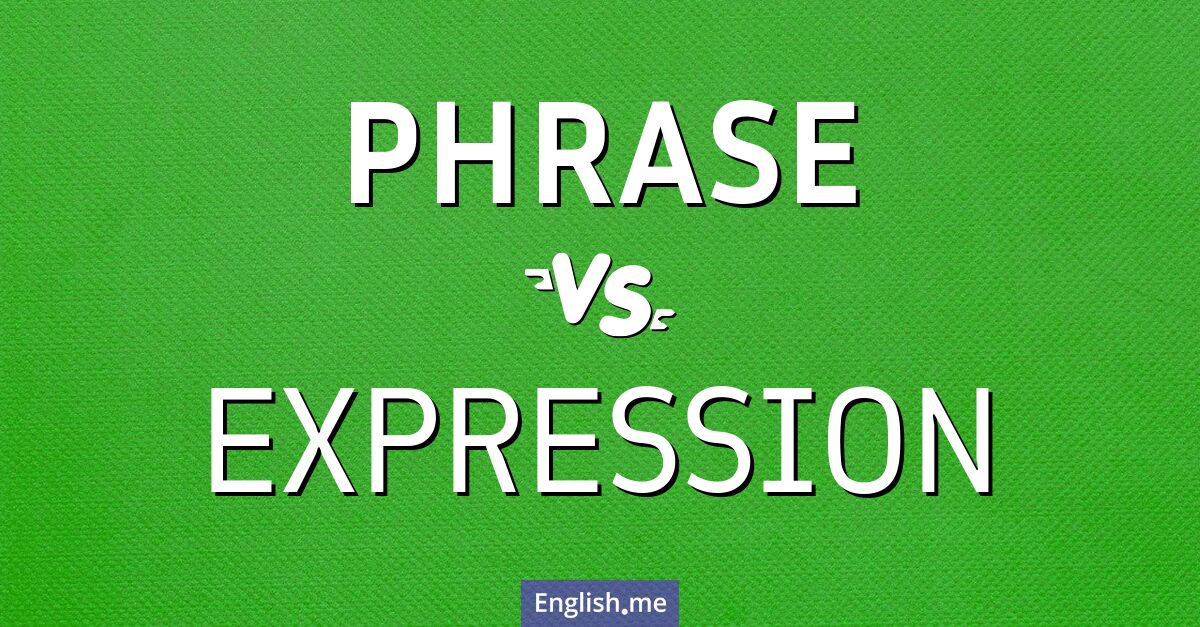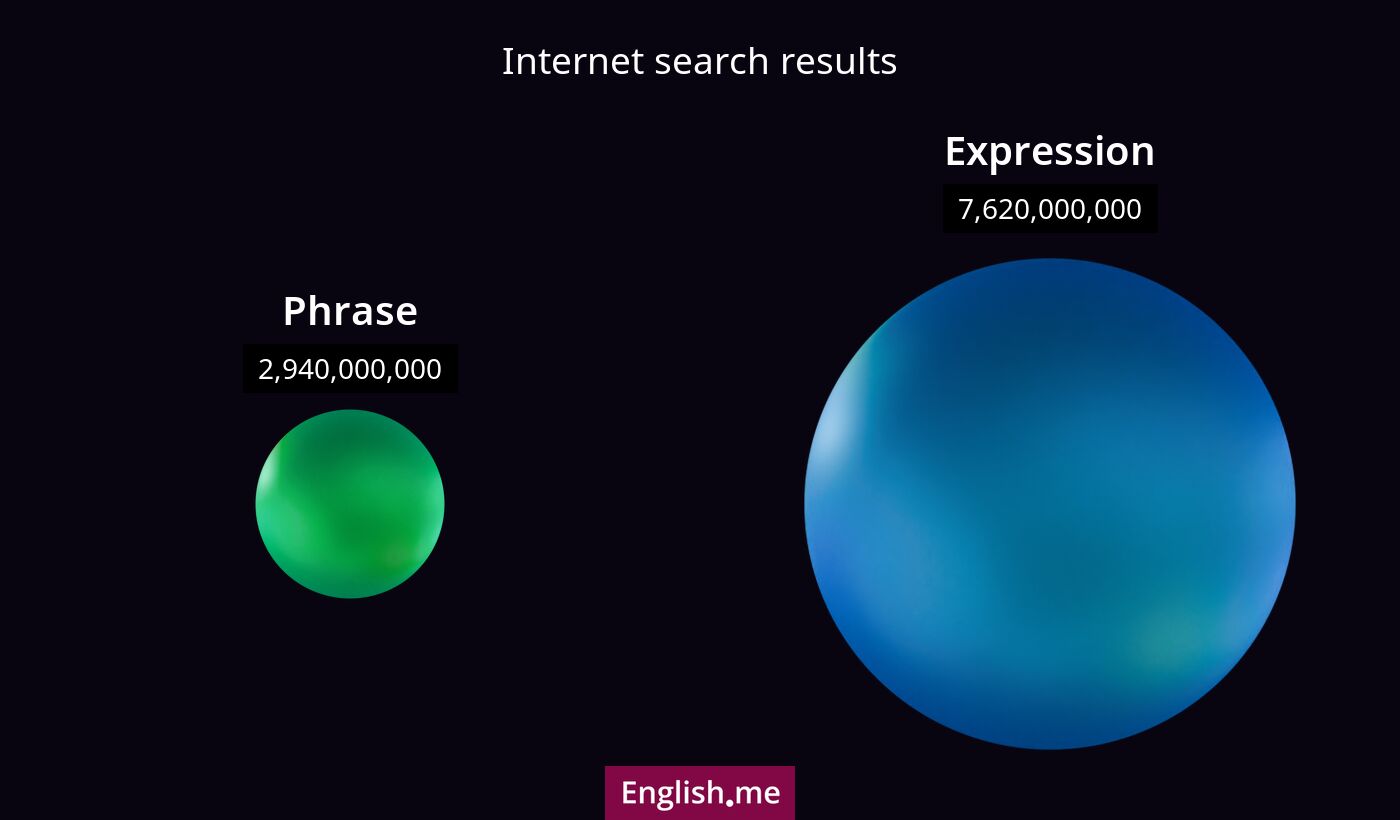"Phrase" vs. "expression": what's the difference?
Reviewed and edited by  Anwar Kareem 24/01/2025, 13:01
Anwar Kareem 24/01/2025, 13:01
English.me team member

 What is similar?
What is similar?
Both "phrase" and "expression" refer to units of language that convey meaning, often consisting of multiple words.
 What is different?
What is different?
A "phrase" is a specific grammatical term for a group of words functioning as a unit within a sentence, lacking a subject and predicate. An "expression" is a broader term referring to any way of conveying ideas or feelings, including phrases, idioms, words, or gestures.
 Which one is more common?
Which one is more common?

 Examples of usage
Examples of usage
Phrase- She learned a new phrase in her English class.
- The phrase "breaking the ice" means to initiate conversation.
- Modifiers in a sentence are often phrases that add detail.
- His expression of gratitude was heartfelt.
- The idiom "raining cats and dogs" is an unusual expression.
- Her puzzled expression showed she didn't understand.

 English
English español
español française
française italiano
italiano deutsche
deutsche 日本語
日本語 polski
polski česky
česky svenska
svenska Türkçe
Türkçe Nederlands
Nederlands